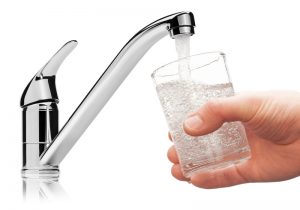
Learn why it’s so important to treat hard water and which systems work best in today’s guide. We’re here to answer any questions you have and make sure you get the best water filtration system or water softener for your home, so contact our team to learn more.
THE PROBLEM WITH HARD WATER
Hard water is the presence of minerals like calcium and magnesium in the water supply, and is a bigger problem than most people realize. True, it does not normally cause any adverse health effects when you drink it. But it causes other problems that you may or may not notice.
- Soap doesn’t dissolve easily in hard water, which means soap scum is left behind in tubs and residue may be left on clothes or in dishwashers.
- Many people notice their skin or hair just doesn’t feel clean enough after a shower with hard water.
- Mineral deposits are left behind on sinks and drains, making them harder to clean.
- Those same mineral deposits can clog pipes and ruin coffee makers, dishwashers, showerheads, and other plumbing appliances.
That last point is why we think it’s so important to find a water treatment system that works for your hard water.
USING WATER FILTERS TO TREAT HARD WATER
Many types of water filters make the claim that they can treat hard water—and this is true. Much of the sediment in hard water can get trapped in a media filter or carbon filter, softening the water—to an extent. A water filter may be best for homes in which hard water isn’t the biggest problem, but other pollutants or poor water taste are a primary concern.
WATER SOFTENERS
If you really want to be sure hard water is eliminated, the best bet is a water softener. This system replaces the minerals in the water supply with salt, in small amounts so it is not harmful to ingest. You will have to keep the water softener maintained and refill salt from time to time, but it’s worth it to protect your home from the adverse effects of hard water.
REVERSE OSMOSIS
Reverse osmosis systems are quite powerful, using the scientific process of (reverse) osmosis to allow pressurized pure water through a very thin membrane, and almost nothing else. That means it should block most minerals.
However, hard water can actually interfere with the operation of a reverse osmosis system. One reason you might look into installing a water softener is because you have a reverse osmosis system that you’d like to protect!
Get a new water filter or water softener in Teaneck, NJ from BZ Dependable Plumbing & Heating Inc. today!

